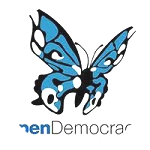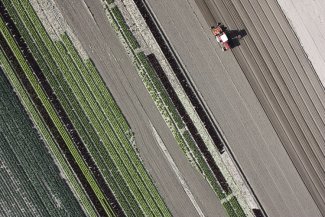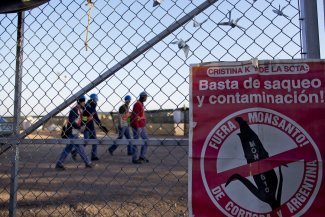Commodity traders wreak havoc on global markets and profit from ecological and social devastation. Can they be stopped?
Commodity trading firms are among the most important corporations in global capitalism, yet most people have never heard of them.
As intermediaries between suppliers and buyers of primary and secondary commodities, these shadowy entities are key players in vital international markets, from aluminium and crude oil to soybean meal and zinc. They use their transportation, processing and storage capabilities to capitalise on disruptions in global supply chains, and they trade on derivatives markets to both hedge against, and speculate on, price fluctuations.
The level of control they have over essential raw materials is eye-watering. The four largest agricultural commodity traders – Archer Daniels Midland (ADM), Bunge, Cargill and Louis Dreyfus – control around 75 to 90 per cent of the global grain trade. Just three traders – Vitol, Glencore and Trafigura – handle the equivalent of half of OPEC’s total oil output. In 2010, Glencore accounted for 55 per cent of the global zinc market and 36 per cent of the global copper market, and in 2015 Wilmar dealt with 45 per cent of global trade in palm oil. The annual revenues of the major commodity trading firms are often comparable to, and sometimes even exceed, those of Wall Street banks and major oil companies.
For commodity traders, instability is good for business. When a global pandemic leads to the shuttering of factories and massive shifts in consumer demand, the traders can profit from the resulting volatility.
When drought in the American Midwest leads to a reduction in the domestic supply of livestock feed in the United States, they can use their transportation capabilities to ship more soybeans from Brazil. And when climate change leads to more unpredictable weather patterns and harvests, they can benefit from the chaos in global markets, using their physical marketing operations and speculative trading activities to gain a competitive edge. During the last major global food crisis in 2008, the profits of commodity trading firms soared.
Promoting instability and corruption
Defenders of commodity trading firms argue that their surging profits during periods of instability are not indicative of malfeasance, but rather underscore their indispensable role in smoothing out dislocations in supply and demand through the pursuit of profitable arbitrage opportunities. Without traders operating as the ‘visible manifestation of the invisible hand’, the argument goes, things would be much worse. Despite its superficial appeal, this line of reasoning overlooks the fact that the operations of the commodity trading firms often promote the instability that their trading activities are purported to solve.
Commodity trading firms have repeatedly engaged in trading activities on derivatives markets, which make market dysfunctions more rather than less likely. For example, over the past two decades the major agricultural commodity trading firms have generated huge profits from the production and trade of ethanol and biodiesel. The biofuels boom has diverted vast quantities of grain and oilseeds from food production into fuel production. These activities contribute to higher and more volatile food prices while offering limited to no gains in reducing greenhouse gas emissions.
Beyond their role in destabilising markets, commodity traders also have a sordid record of promoting corruption among elites who squander their countries’ resources, involving themselves in all manner of scandals from the oil-for-food case in Iraq, to Operation Car Wash in Brazil.
One trading firm – Trafigura – was in 2006 involved in one of the worst environmental disasters of the 21st century in which illegal practices in the dumping of toxic waste left scores dead and thousands seriously ill in Côte d’Ivoire. Another, Glencore, is one of the world’s largest coal miners and exporters and has secretly funded efforts to shift public opinion on the world’s dirtiest fossil fuel.
Many of the major trading firms have obtained commodities extracted through forced labour, including the labour of children, and are implicated in continued deforestation in South America and South-East Asia.
This lengthy rap sheet raises an important political question. What, if anything, can be done to address the ecological and social devastation wrought by the powerful commodity trading firms?
Financial activism to the rescue?
In recent years, financial activism has been touted as a strategy for pushing these firms to reverse the harms rife in their supply chains. Financial activism has two basic components, ‘voice’ and ‘exit’. Through use of ‘voice’ shareholders can put forth resolutions and vote at company annual meetings, and through use of ‘exit’ shareholders and creditors can shape company policy by threatening to divest and discontinue credit.
The prospects for shareholders to use their voice is limited by the ownership structures of the commodity trading firms. Our research shows that eight of the ten largest commodity traders are either state-owned (China’s COFCO), privately held by founding families, senior employees and managers (Vitol, Trafigura, Mercuria, Cargill and Louis Dreyfus) or publicly held by individuals and entities closely connected to commodity trading (Glencore and Wilmar).
Only two – ADM and Bunge – are owned in any significant way by outside shareholders with no clear connection to commodity trading. However, they are mostly owned by giant asset managers, including the ‘big three’ of BlackRock, State Street and Vanguard. These giants have gained a reputation as ‘passive investors’, which merely follow an index, but in recent years they have pledged to use resolutions and voting to register their dissatisfaction with businesses that fail to improve their record on so-called Environmental, Social and Governance (ESG). But our research finds that in the case of the commodity trading firms, these pronouncements ring hollow.
Between 2010 and 2019, only one shareholder resolution aimed at ESG improvements was put to a vote at ADM in 2011 and one at Bunge in 2015, out of a total of 148 and 80 shareholder votes at the two companies, respectively.
The resolution at ADM attracted only 4.2 per cent of votes in its favour, with BlackRock’s funds voting against the resolution, State Street abstaining, and Vanguard not voting at all. At Bunge, the resolution gained 29.3 per cent of votes in its favour, but tellingly all the funds of the three major asset management companies voted against the resolution.
Overall, the three major asset managers voted in favour of only 10.7 per cent of shareholder resolutions aiming for ESG improvements in commodity firms between 2014 and 2019. In contrast, they voted in favour of 95.9 per cent of management resolutions seeking approval for dividend payments and stock buybacks.
Despite the considerable hype surrounding it, financial activism is therefore unlikely to change the behaviour of commodity trading firms, simply because these firms are organised in ways that insulate them from financial market pressures.
Money walks, and beyond financial activism
What about divestment as an alternative strategy to curb the destructive behaviour of commodity trading firms? Activists around the world have launched divestment campaigns calling on shareholders, creditors and underwriters to use the traders’ dependence on equity and debt markets to drive ESG improvements.
But the efficacy of equity divestment is limited for the same reasons as shareholder resolutions: few trading firms rely on financing from shareholders outside of the commodity trade. And despite the ecological devastation in which the commodity trading firms are involved, asset managers are unwilling to engage in bold divestment initiatives.
For example, BlackRock announced a new climate plan in January 2020, which entails reducing exposure to coal mining companies. But BlackRock has no intention of divesting from Glencore, despite the fact that it extracts more coal than mining giants BHP Billiton and Anglo American combined.
There are also challenges to bringing about ESG improvements via credit divestment. In our research we find that ownership of the commodity traders’ bonds is widely dispersed, and this is likely to create collective action problems for activist bondholders. We also find that underwriting services are concentrated among the big banks, which might present opportunities for activists to demand that banks withhold these services to commodity traders that show no signs of improving ESG.
But even this strategy is limited by the fact that many of the commodity traders have been deleveraging in recent years. According to think tank Chain Reaction Research, reducing debts in this way limits the financing risks that commodity trading firms experience from divestment threats. And these threats might be further blunted by the shadow banking activities of commodity traders, which allow them to raise funds by taking assets off their balance sheets and selling those assets as securities. These activities circumvent standard practices of company disclosure and make it even more difficult for activist investors to trace the commodity traders’ financing sources.
Given the limitations of shareholder resolutions and divestment, we are sceptical about the potential of financial activism to pressure commodity trading firms into reversing the socially and ecologically harmful effects of their activities.
Our intention is not to entirely dismiss the efforts of activist investors to address problems relating to the commodity trading firms. If nothing else, attempts at mobilising pressures within financial channels can raise vital awareness of the commodity traders and amplify their reputational risks. But meaningful resistance must go beyond shareholder resolutions and divestment campaigns to encompass other forms of mobilisation, including direct support for Indigenous protest movements, pipeline blockades, consumer advocacy campaigns, electoral coalition-building, and labour organising.
Commodity trading firms are diverse, complex and ever-changing entities. This means that efforts to check their power must be similarly multifaceted and relentless. The future of the planet can’t simply be left to the financial system.















